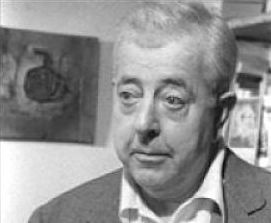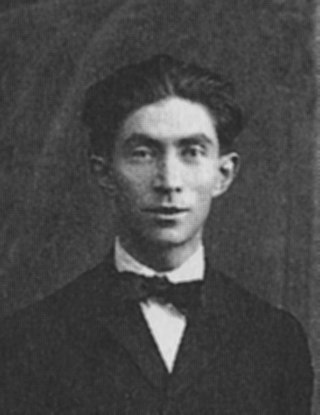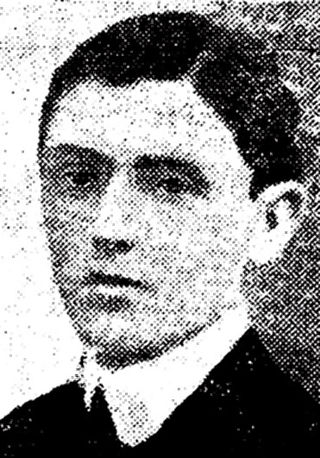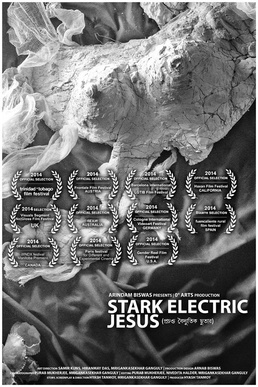Related Research Articles

Suspension of disbelief is the avoidance—often described as willing—of critical thinking and logic in understanding something that is unreal or impossible in reality, such as something in a work of speculative fiction, in order to believe it for the sake of enjoying its narrative. Historically, the concept originates in the Greco-Roman principles of theatre, wherein the audience ignores the unreality of fiction to experience catharsis from the actions and experiences of characters.

Jacques Prévert was a French poet and screenwriter. His poems became and remain popular in the French-speaking world, particularly in schools. His best-regarded films formed part of the poetic realist movement, and include Les Enfants du Paradis (1945). He published his first book in 1946.

Benjamin Fondane or Benjamin Fundoianu was a Romanian and French poet, critic and existentialist philosopher, also noted for his work in film and theater. Known from his Romanian youth as a Symbolist poet and columnist, he alternated Neoromantic and Expressionist themes with echoes from Tudor Arghezi, and dedicated several poetic cycles to the rural life of his native Moldavia. Fondane, who was of Jewish Romanian extraction and a nephew of Jewish intellectuals Elias and Moses Schwartzfeld, participated in both minority secular Jewish culture and mainstream Romanian culture. During and after World War I, he was active as a cultural critic, avant-garde promoter and, with his brother-in-law Armand Pascal, manager of the theatrical troupe Insula.
Maayan is an Israeli magazine for poetry, literature, art, and ideas. Its first issue appeared in 2005 and was named for Maayan Strauss.

Abdellatif Laâbi is a Moroccan poet, journalist, novelist, playwright, translator and political activist.
Nationality words link to articles with information on the nation's poetry or literature.
Related to closet drama, a closet screenplay is a screenplay intended not to be produced/performed but instead to be read by a solitary reader or, sometimes, out loud in a small group.
Video poetry is poetry in video form. It is also known as videopoetry, video-visual poetry, poetronica, poetry video, media poetry, or Cin(E)-Poetry depending on the length and content of the video work and the techniques employed in its creation.

David Dephy, also known as David Dephy Gogibedashvili, is a Georgian / American poet, novelist, essayist, performer, multimedia artist, painter, the founder of Poetry Orchestra and the poetic order Samcaully. He is the author of eight novels and seventeen collections of verse and three poetry bilingual audio albums with orchestra and electronic bands. Named as Literature Luminary by Bowery Poetry, Stellar Poet by Voices of Poetry, Incomparable Poet by Statorec, Brilliant Grace by Headline Poetry & Press and Extremely Unique Poetic Voice by Cultural Daily. He lives and works in New York City, USA.

Charles Dobzynski was a French poet, journalist and translator.

Fuyuhiko Kitagawa was a Japanese poet and film critic. His real name was Tadahiko Taguro. While born in Shiga Prefecture, he was raised in Manchukuo in China due to his father's work on the South Manchurian Railway, and then graduated from Tokyo University. He began publishing his own poetry in Manchukuo in 1924 and his work was influenced by that colonial context. His work was praised by Riichi Yokomitsu, and he became a prominent figure in modernist poetry in Japan, pursuing especially prose poetry. Kitagawa was also a well-known film critic, one who especially praised the work of Mansaku Itami, calling it a new, realistic "prose cinema" in opposition to the old "poetic cinema" of Sadao Yamanaka, Daisuke Itō, and others. He was a champion of neorealism in the postwar era.

D. Iacobescu or Dumitru Iacobescu was a Romanian Symbolist poet. His literary activity only lasted about two years, between his high school graduation and his death from tuberculosis, but made him a critically acclaimed presence inside Romania's Symbolist movement. Much of Iacobescu's work remained unpublished during his lifetime, and survived as autographed notebooks. Once rediscovered and published some twenty years after his death, it brought him posthumous recognition as a writer of talent, but one whose introversion and nostalgia ran contrary to the main currents in modernism.

Matt Robinson is a Canadian poet born in Halifax, Nova Scotia.
The film-poem is a label first applied to American avant-garde films released after World War II. During this time, the relationship between film and poetry was debated. James Peterson in Dreams of Chaos, Visions of Order said, "In practice, the film poem label was primarily an emblem of the avant-garde's difference from the commercial narrative film." Peterson reported that in the 1950s, overviews of avant-garde films "generally identified two genres: the film poem and the graphic cinema". By the 1990s, the avant-garde cinema encompassed the term "film-poem" in addition to different strains of filmmaking. Film-poems are considered "personal films" and are seen "as autonomous, standing apart from traditions and genres". They are "an open, unpredictable experience" due to eschewing extrinsic expectations based on commercial films. Peterson said, "The viewer's cycles of anticipation and satisfaction derive primarily from the film's intrinsic structure." The film-poems are personal as well as private: "Many film poems document intimate moments of the filmmaker's life."
"Liberté" (Liberty) is a 1942 poem by the French poet Paul Éluard. It is an ode to liberty written during the German occupation of France.

Stark Electric Jesus is a 2014 short film inspired by the poem Prochondo Boidyutik Chhutar or Stark Electric Jesus written by Malay Roy Choudhury. The film has won the official selection as the only Indian film at the Trinidad and Tobago Film Festivalin New Media section and has been selected for screening at Leeds Independent Film Festival. The film also won 27 official selection in 20 different countries and also won 'Best Video Art' from Poland, 'Most Promising Artist' Award from Madatac, 06, Spain and 'Best Fantasy Film' award from Hrizantema International Horror and Fantasy Film Festival, Serbia.
Joshua Ip is a Singaporean poet, and writer.

Barbu Nemțeanu was a Romanian poet, humorist and translator, active on the modernist wing of the Romanian Symbolist movement. Of Jewish Romanian background, he lived much of his life in the port city of Galați, which provided him with poetic inspiration, but whose provincial life sparked in him intellectual revolt. Orphaned and leaving school at an early age, then diagnosed with tuberculosis, he found meager employment as a clerk, but, throughout, maintained confidence in his poetic genius. Nemțeanu's Symbolism blended with socialism, but also with a lasting admiration for his adoptive Romanian culture, allowing him to publish pseudonymous work in traditionalist-antisemitic reviews such as Neamul Românesc. He was also one of the Symbolists who frequented the Convorbiri Critice circle, becoming personal friends with its leader, Mihail Dragomirescu.

Gloria Alcorta was an Argentine writer, poet and sculptor.

Venom and Eternity is a 1951 French avant-garde film by Isidore Isou that grew out of the Lettrist movement in Paris. It created a scandal at the 1951 Cannes Film Festival.
References
- ↑ Academic journal article French Forum Christophe Wall-Romana, Cinepoetry: Imaginary Cinemas in French Poetry By Sperling, Joshua
- ↑ Academic journal article French Forum Christophe Wall-Romana, Cinepoetry: Imaginary Cinemas in French Poetry By Sperling, Joshua
- ↑ CINEPOETRY: ‘The Grain Elevators’ SCREENING @ The 33rd Annual Atlantic Film Festival in SEPTEMBER 2013 Posted by matt robinson on 24, July, 2013
- ↑ "'প্রচণ্ড বৈদ্যুতিক ছুতার' ও একটি চিন্তা". charbak. charbak. 6 September 2015. Retrieved 6 September 2015.
- ↑ "কম বাজেটের প্রতিবাদ". ebela. ABP Group. 23 September 2014. Archived from the original on 18 January 2016. Retrieved 23 September 2014.
- ↑ "মলয় বিদ্যুৎ". Anandabazar Patrika. ABP Group. 29 October 2014. Retrieved 29 October 2014.
- ↑ "কয়েক জন কলেজ পড়ুয়া". ei samay. Times Group. 6 October 2014. Retrieved 6 October 2014.
- ↑ 'Scenario's Charm', page55, a chapter "Future of Scenario-Literature-Movement"
- ↑ Kashiya-fuda in Aozora Bunko